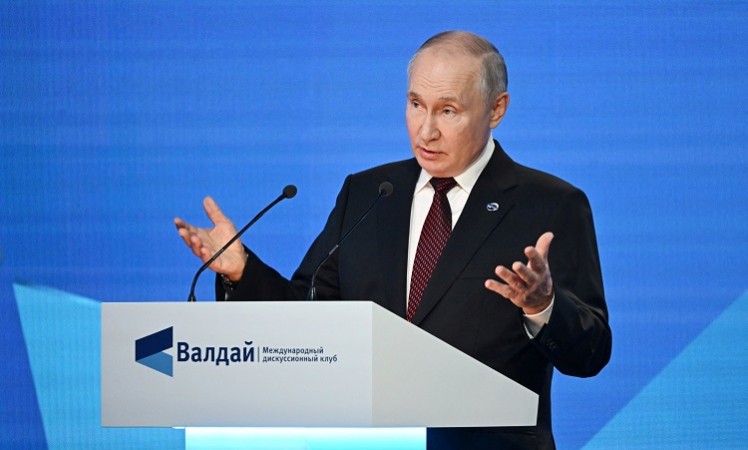
Russian President Vladimir Putin has made a significant announcement, asserting that Russia's nuclear missiles now have the capability to target the United States, making it virtually impossible for any adversaries to survive. This statement has reverberated throughout international defense circles, raising concerns and discussions.
Ever since the commencement of Russia's invasion of Ukraine on February 24, 2022, Putin has consistently underscored the nation's nuclear might as a deterrent. He has repeatedly emphasized that using nuclear weapons against Russia would be an irrational choice. Putin went on to declare that if any country were to attempt such an act, Russia would unleash a formidable barrage of hundreds of missiles, rendering any potential foe with no chance of survival.
One of the key components of this strategic arsenal is the 'Storm Petrel,' known as 'Burevestnik' in Russian. This ground-launched missile possesses both nuclear-capable and nuclear-powered attributes, setting it apart due to its remarkable range. Experts at the International Institute for Strategic Studies have noted that it has the potential to cover distances of up to 20,000 kilometers. This implies that the missile, when stationed anywhere within Russia, could potentially reach targets in the United States, as reported by Reuters.
Additionally, the 'Storm Petrel' possesses the remarkable ability to fly at extremely low altitudes ranging from 50 to 100 meters. This characteristic makes it a stealthy contender, capable of evading air-defense radar systems with relative ease. In 2020, the United States Air Force's National Air and Space Intelligence Center opined that once operational, this missile would provide Moscow with a "unique weapon with intercontinental-range capability," according to Reuters.
Nonetheless, the development of the 'Storm Petrel' has not been without its share of challenges. Historical data reveals instances of test failures, with a notable incident in 2019 where an experimental procedure in the White Sea led to a tragic accident, resulting in the loss of five Russian nuclear specialists. While not officially confirmed, there were speculations among US intelligence circles that this incident might have been related to testing the Burevestnik.
For a considerable period, the West remained skeptical about the actual deployment of the Burevestnik missile. In 2019, the Nuclear Threat Initiative, a security organization, predicted that it might take a decade before the Burevestnik became operational.
The Burevestnik's capability to remain airborne for extended durations, potentially spanning days, could potentially revolutionize nuclear strategy by allowing it to circumnavigate the globe, evade defenses, and strike unpredictably.
These recent advancements in Russian strategic systems could complicate discussions between Moscow and Washington regarding limits on nuclear weapons, as reported by Reuters. Earlier this year, Russia stepped back from the New START treaty, which aims to cap nuclear arsenals and is set to expire in 2026.
Bangladesh Gets First Uranium Shipment from Russia for Nuclear Power Plant
Russia Conducts Nationwide Emergency Warning System Test